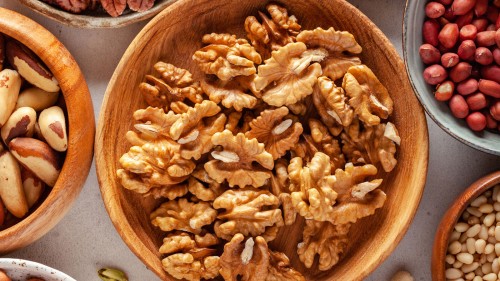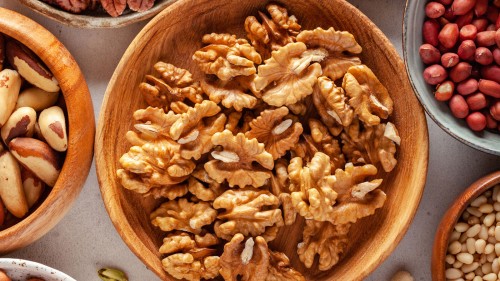The Role of Nutrition in Heart Health
Improve your heart health through nutrition. Learn the role of almonds, pulses, fatty fish, whole grains, fruits and vegetables, avocado, and olive oil. Start making heart-friendly choices today!
Are you looking to prioritize your heart health? Well, nutrition is a key player in maintaining a healthy heart, and it’s time to start paying attention to what you put on your plate. Including heart-friendly foods in your diet can have a significant impact on your cardiovascular health. For example, almonds, with their abundance of healthy fats, antioxidants, vitamins, and minerals, have been shown to improve cholesterol levels. Additionally, pulses like beans and lentils, high in fiber, have the potential to lower the risk of heart disease and high blood pressure. Fatty fish, such as salmon and tuna, contain omega-3 fatty acids that are known to protect heart health and lower the risk of cardiovascular disease. Incorporating whole grains, like oats and brown rice, into your meals can also help lower cholesterol levels due to their high fiber and nutrient content. Don’t forget the importance of a colorful plate! A variety of fruits and vegetables can significantly benefit heart health and even reduce the risk of cardiovascular disease mortality. Avocado, a nutrient-dense food, can raise good cholesterol levels and reduce inflammation, while olive oil, a healthy fat, is linked to a decreased risk of heart disease. So why not explore the role of nutrition in heart health and make some delicious and heart-friendly choices starting today?
The Role of Nutrition in Heart Health
When it comes to maintaining a healthy heart, nutrition plays a crucial role. The food we eat has a direct impact on our overall cardiovascular health, and making informed dietary choices can significantly reduce the risk of heart disease. In this article, we will explore the role of various nutritional factors in promoting heart health, including almonds, pulses, fatty fish, whole grains, fruits and vegetables, avocado, and olive oil.

Almonds
Almonds are not only delicious but also packed with numerous heart-healthy benefits. Rich in healthy fats, almonds are an excellent source of monounsaturated fats, which can help lower bad cholesterol levels and reduce the risk of heart disease. Moreover, almonds are loaded with antioxidants that protect our cells from oxidative damage, reducing inflammation and lowering the risk of heart-related conditions. Additionally, almonds are packed with essential vitamins and minerals, including vitamin E, magnesium, and potassium, all of which contribute to optimal heart function. By incorporating almonds into your diet, you can enjoy a tasty and nutritious snack that improves cholesterol levels and supports heart health.
Pulses
Pulses, such as beans and lentils, are known for their high fiber content, making them a fantastic addition to any heart-healthy diet. Fiber plays a crucial role in maintaining cardiovascular health by promoting regular bowel movements, reducing cholesterol levels, and controlling blood sugar levels. By consuming pulses regularly, you can significantly lower the risk of heart disease, as well as hypertension. High blood pressure is a leading cause of heart-related complications, and by incorporating pulses into your meals, you can help maintain a healthy blood pressure and reduce the strain on your heart.
Fatty Fish
Including fatty fish in your diet can have a profound impact on heart health, thanks to the abundance of omega-3 fatty acids found in these types of fish. Omega-3 fatty acids are essential for protecting heart health, as they have been shown to reduce inflammation, lower triglyceride levels, and decrease the risk of cardiovascular disease. By regularly consuming fatty fish such as salmon, tuna, or mackerel, you can enjoy the benefits of omega-3 fatty acids and significantly lower your risk of heart-related conditions. Whether grilled, baked, or canned, incorporating fatty fish into your meals is a delicious and heart-healthy choice.
Whole Grains
When it comes to promoting heart health, whole grains are an excellent dietary choice. Whole grains, such as oats, brown rice, whole wheat bread, and quinoa, are rich in fiber, nutrients, and antioxidants. The high fiber content of whole grains helps regulate cholesterol levels, reducing the risk of heart disease. Additionally, whole grains provide significant amounts of essential vitamins and minerals, including vitamin B, magnesium, and selenium, all of which contribute to a healthy heart. By choosing whole grain options over refined grains, you can enjoy a nutrient-packed diet that supports heart health and offers a myriad of other health benefits.

Fruits and Vegetables
It is no secret that fruits and vegetables are incredibly beneficial for overall health, including heart health. These colorful and tasty nutrient powerhouses are packed with vitamins, minerals, and antioxidants, all of which contribute to optimal cardiovascular function. The high antioxidant content found in fruits and vegetables helps reduce the risk of oxidative stress and inflammation, two factors closely linked to heart disease. Furthermore, the fiber content in these plant-based foods helps regulate cholesterol levels, improving heart health and reducing the risk of cardiovascular disease mortality. By incorporating a variety of fruits and vegetables into your diet, you can provide your body with the essential nutrients it needs to thrive and support a healthy heart.
Avocado
Avocado is a versatile and nutrient-dense food that offers numerous health benefits, including its positive impact on heart health. Avocados are rich in monounsaturated fats, which can help increase levels of good cholesterol (HDL) in the blood while reducing bad cholesterol (LDL) levels. By incorporating avocados into your diet, you can improve lipid profiles and reduce the risk of heart disease. Additionally, avocados are packed with potassium, a mineral that plays a crucial role in heart function and helps regulate blood pressure. Moreover, avocados contain antioxidants and anti-inflammatory properties, which can further support heart health by reducing inflammation and protecting against oxidative stress. Adding avocado to your meals or enjoying it as a spread on whole grain toast is a delicious and heart-healthy choice.

Olive Oil
When it comes to healthy fats, olive oil takes the lead. Olive oil is rich in monounsaturated fats, which have been associated with a decreased risk of heart disease. Consuming olive oil as part of a balanced diet can help lower bad cholesterol levels while increasing levels of good cholesterol. Additionally, the antioxidants found in olive oil have been shown to reduce inflammation and oxidative stress, two factors that can contribute to heart disease. With its robust flavor and numerous health benefits, olive oil is an excellent choice for salad dressings, sautéing, or drizzling over cooked vegetables to boost heart health.
In conclusion, nutrition plays a vital role in maintaining a healthy heart. By incorporating heart-healthy foods such as almonds, pulses, fatty fish, whole grains, fruits and vegetables, avocado, and olive oil into your diet, you can significantly reduce the risk of heart disease, improve cholesterol levels, and support optimal cardiovascular function. Remember to make informed dietary choices, choose whole, nutrient-dense foods, and maintain a balanced diet to promote heart health and overall well-being. Start making these small changes today, and you’ll reap the benefits of a healthy heart for years to come.






